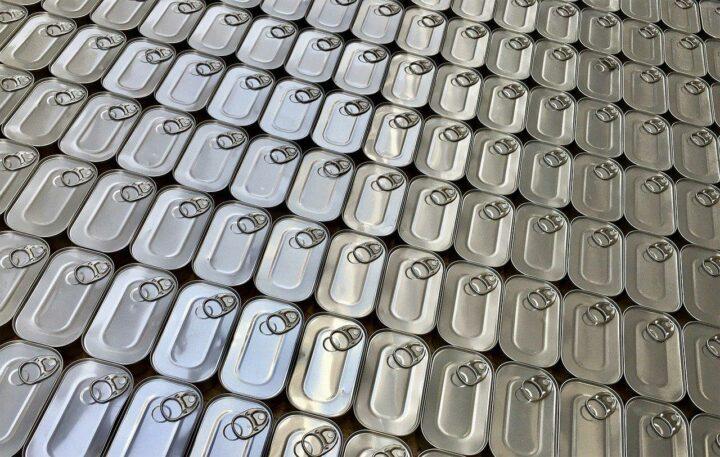The Vegan Emergency Food Guide
A natural disaster can strike at any moment and your access to healthy food can be cut off just as quickly. The best way to protect you and your loved ones in the case of an emergency is to think ahead and be prepared. When preparing an emergency food supply, The CDC recommends that you pack enough food and water for a minimum of three days.
In this guide, we’ll go over different foods you can collect, prepare and add to your non perishable vegan food stockpile. They require little to no cooking or refrigeration and meet your daily nutritional needs as well as those of your loved ones.
What kind of foods should you stockpile?
When preparing for a disaster, it can be easy to place too much focus on survival and forget about the simple questions like what you actually like to eat. Nutrient-rich foods are an essential item on your emergency supply list, but they’re not doing you any favors if no one eats them. A positive attitude can be your most valuable survival tool in the case of a disaster, so make sure to pack food that will keep you alive and satisfy you.
The great thing about these foods: you likely already have many of these items in your pantry! If not, pick up a few of these items each time you hit the grocery store. Before long, you’ll have a complete set of awesome emergency foods prepped and ready for anything.
Ready-to-eat canned fruits and vegetables are at the top of our vegan emergency food packing list.
Canned fruit is soft and sweet, which makes it great for when you’re craving a healthy dessert. Most canned fruit contains added sugars, however, so be sure to keep this in mind when planning your meals, or choose varieties with reduced or no added sugars. The naturally soft texture of canned fruit also makes it a good choice for young children.
Baby food falls also falls under this category. In the event of an emergency, you don’t want to be caught empty-handed when it’s time to feed the little ones. If your baby is older than six months and either supplementing breast feedings with solid foods or has made the transition to a solid food diet, they will need some well-rounded food options as well. Some of these vegan baby foods should include a healthy combination of vegetables, potatoes, cereal foods (polenta, pearl barley, quinoa), pulses (beans and peas), tofu, ground nuts and seeds, and fruits. It’s possible to blend and preserve your own vegan baby food items, but in the case of an emergency, we recommend avoiding the unnecessary extra risk involved with home canning. The last thing you want is a sick baby when you’re caught in a natural disaster, and there are many different shelf-stable vegan baby food options available to give your baby what they need.

Canned vegetables like beans, tomatoes, and peas are nutrient powerhouses and good for you as well as older children. Rich in vitamins and minerals, canned veggies will fill you up and keep you feeling good. One thing to watch out for: sodium. Sodium will make you thirsty and in an emergency, you’ll likely have limited access to clean drinking water. You should be able to find low sodium or no-salt-added versions of your favorite canned vegetables. These make a great addition to your vegan emergency food stockpile.
Vegan granola bars and protein bars are packed with essential energy-giving protein and carbs as well as dietary fibers which will keep you feeling full. There are many vegan brands of breakfast bars and cereal bars and even non-vegan brands generally have of vegan flavors and varieties for you to choose from.
Dry cereals and dehydrated fruits work well together as a nutrient-rich breakfast item or snack. Dried mango, apple slices, cranberries, and banana chips contain loads of vitamin C which can help defend your body against untimely illness. If you’re stuck without much to do, you’re going to notice that you feel hungry more often. Healthy and non perishable snack options are great to have on hand for passing time and keeping tummies happy.
Peanut butter and other nut butters like almond butter or cashew butter are high-energy and full of protein so they’ll slash your hunger and keep you going. We recommend stocking up on reduced-sodium nut butters to help you avoid exhausting that most precious resource: potable drinking water.
Rice, Dried beans, and lentils are shelf-stable and filling sources of essential carbohydrates. They work great as a base for your canned items but you’ll need access to clean water in order to prepare them. You’ll also need a cooking element capable of boiling water, which means access to a safe and stable power source.
Is Vegan Canned Food Good?
Of course it’s best to eat fresh fruits and veggies when you can, but your options for fresh produce are severely limited in the event of a natural disaster. Even items that appear unaffected could have come in contact with contaminated flood water or harmful air particles. It’s best to opt for sturdy, shelf-stable emergency food like canned food.

Not sure you can stomach vegan canned food? A lot of classic canned staples are vegan, but here are some of our favorites if you’re still unsure about your choices.
Canned tomatoes make a delicious and healthy base for countless vegan recipes. They’re a tasty source of vitamins A, C, and K as well as potassium, fiber, and cancer-fighting lycopenes. Many brands offer fire-roasted tomatoes or added chilies to give your meal a flavor boost.
Canned Beans are a precious source of plant-based protein. There are also tons of different kinds of canned beans readily available at your nearest grocery store. They’re tasty, healthy and go well with just about anything.
Canned fruit is sweet and delicious. With many different blends, cocktails, and combinations available, you’re sure to find something that suits your tastes. Fruits like pineapple come in cans as crushed, chunks, rings, and tidbits, offering you a variety of textures as well as flavors.
Tips for Prepping Food
Pack a manual can opener and eating utensils. If you’re including ready-to-eat canned items in your vegan emergency food stockpile, make sure you remember to include all necessary tools. Consider including disposable dinnerware and utensils as well, as you could have limited access to water clean enough to wash dishes.
Keep food in sealed containers. Without access to refrigeration, many types of food can become unsafe to eat. Bacteria spreads quickly at room temperature and depending on the germ, eating infected foods can make you very sick. You want to avoid this at all costs in the case of a natural disaster, where your access to medicine and other healthcare resources will already be extremely limited.
Even vegan foods can transmit food borne illness, so it’s best to plan to finish any canned items once they’re opened. Lay out your emergency meals carefully ahead of time so as to avoid waste and prevent risk of illness.
Donate Now

Food For Life Global’s primary mission is to bring about peace and prosperity in the world through the liberal distribution of pure plant-based meals prepared with loving intention. |





